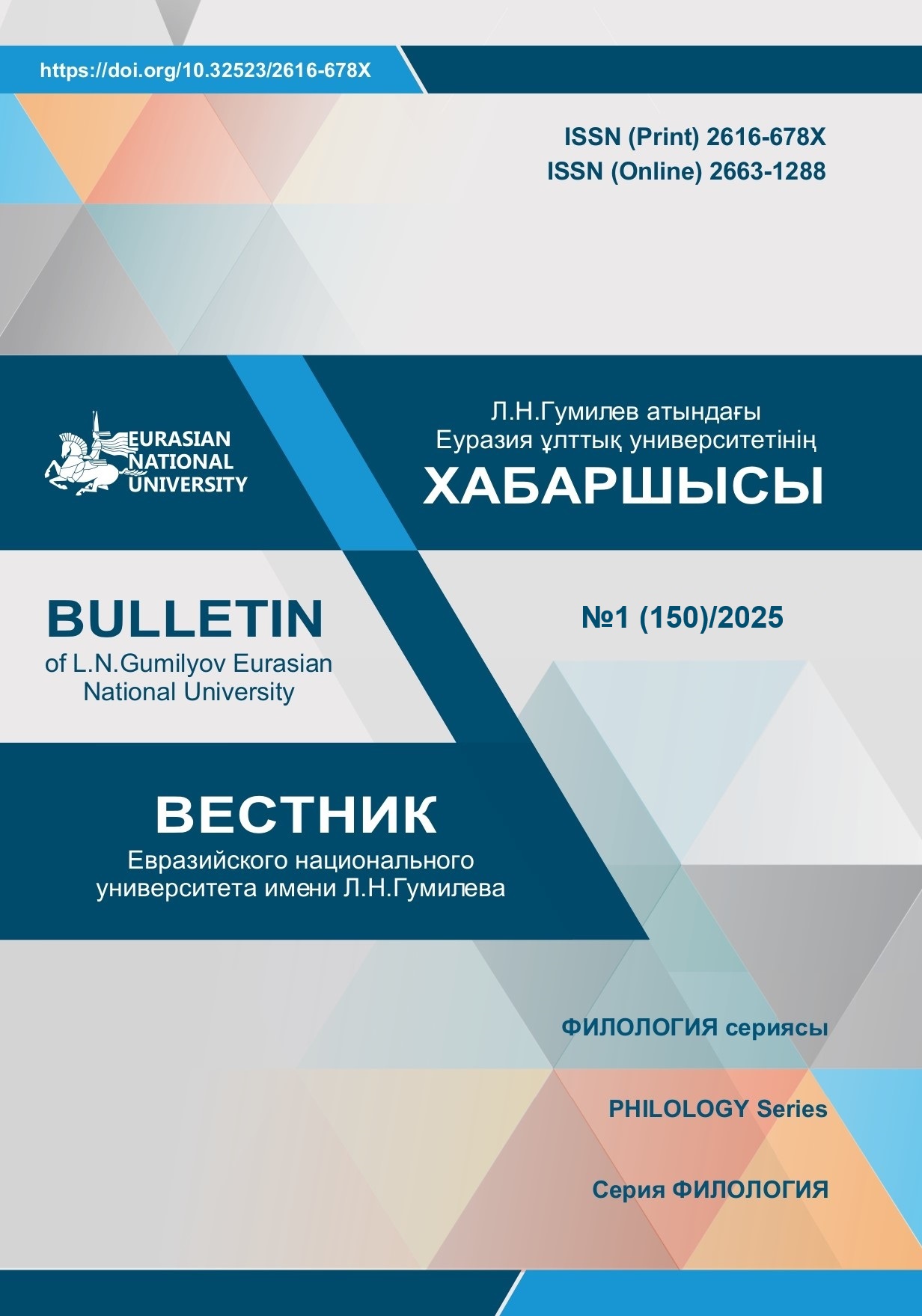Associative experiment and linguistic consciousness
Views: 321 / PDF downloads: 152
DOI:
https://doi.org/10.32523/2616-678X-2025-150-1-83-94Keywords:
association, linguistic consciousness, associative experiment, stimulus words, ethnicity.Abstract
The article highlights the role of the associative experiment in studying ethnic consciousness within the framework of modern anthropocentric paradigms. It is recognized as a method actively used in the comprehensive study of linguistic consciousness. Speaking about the problem of language and ethnicity, we will talk about its peculiarity in the cognition of the linguistic picture of the world. Taking ethnographisms as an object of study is an important factor in recognizing national and cultural characteristics. During the experiment, ten stimulus words from semantic groups of ethnographisms related to time, household items, distance and crafts were considered. During it, several groups of reaction words were identified, and their percentage indicators were differentiated. Based on the analysis, quantitative and qualitative characteristics of reaction words used as a feature and having an evaluative nature, forming one semantic field with stimulus words, were analysed. The collected materials show that the consciousness of Kazakh youth retains information formed in the traditions and way of life of the people. This allows them to recognize the model of the world, the conceptual picture of the world, and the national and cognitive features characteristic of society.
Downloads
Published
How to Cite
Issue
Section
License
Here is the academic English version suitable for publication on the journal website:
The academic journal “Bulletin of L.N. Gumilyov Eurasian National University. Philology Series” adheres to an Open Access policy for all published materials, based on the principle of free and equitable dissemination of scholarly knowledge. The Editorial Board believes that open access to research results contributes to the advancement of philological science, strengthens academic communication, and promotes the integration of national research into the international scientific community.
1. Free and Open Access
All articles published in the journal are made openly available on the official website of the journal and are accessible to all users without restrictions, registration, or payment.
Users are entitled to:
-
freely read and download materials;
-
copy and distribute the texts of publications;
-
print articles;
-
use materials for scientific and educational purposes, provided that proper attribution is given to the author(s) and the original source of publication.
2. Licensing
Journal materials are distributed under the terms of the Creative Commons Attribution-NonCommercial 4.0 International (CC BY-NC 4.0) license:
https://creativecommons.org/licenses/by-nc/4.0/
This license permits the use, copying, distribution, and adaptation of the materials for non-commercial purposes, provided that appropriate credit is given to the author(s) and a link to the original publication is included.
3. Benefits of Open Access
The Open Access policy ensures:
-
increased visibility and citation of scholarly publications;
-
prompt dissemination of research findings in the fields of philology, linguistics, literary studies, and translation studies;
-
expansion of international academic cooperation;
-
access for readers to up-to-date scientific information without financial or technical barriers.
The Editorial Board is committed to ensuring transparency in editorial processes, maintaining high standards of peer review, and providing broad accessibility to research outcomes in the field of philological studies.










